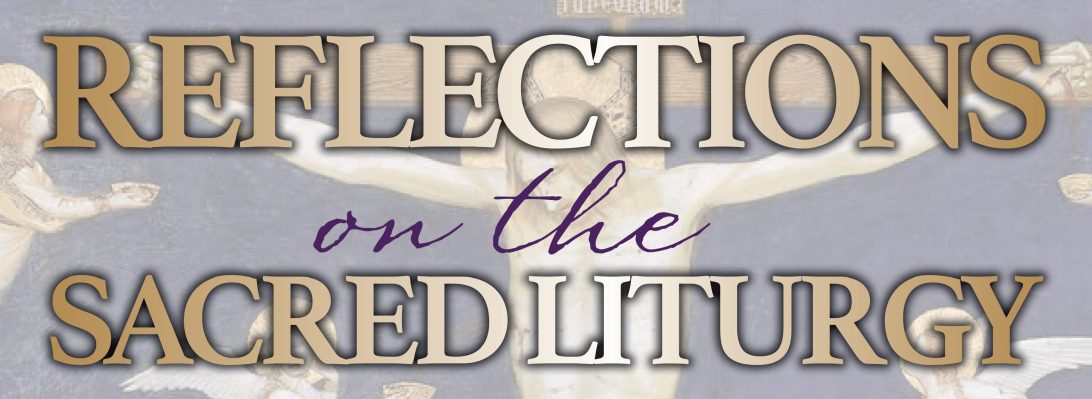The 26th Sunday in Ordinary Time [C]
Am 6:1,4-7 + 1 Tim 6:11-16 + Lk 16:19-31
September 29, 2019
“When the poor man died, he was carried away by angels to the bosom of Abraham.”
As we gaze on the Parable of the Rich Man and Lazarus, if we only look at the two title characters, we miss something important. We miss the Rich Man’s five brothers. Turn your attention to these five brothers, and—just for a moment—away from the mercy for which Lazarus and the Rich Man beg.
We know very little about these five brothers. We could presume that these five are like their brother in wearing fine clothing and dining sumptuously. But we’re not told that outright. The only details that we hear are that they’re still on earth, and that they need to repent. Their brother in the netherworld tells us these two facts.
We see, then, that these five brothers represent us. When Jesus first preached this parable, He was speaking to the Pharisees. Jesus meant for the Pharisees to see themselves in those five brothers. Yet like the Pharisees, you and I need to repent, and still have time on earth to do so.
The Rich Man failed to care for Lazarus during their earthly lives. Jesus makes clear through this parable that both those in real need—such as Lazarus—and those who neglect the needy—such as the Rich Man—meet with God’s justice after death. Lazarus is “carried away by angels to the bosom of Abraham”, while the Rich Man in “the netherworld [is] in torment”.
Here we see how Jesus’ parable drives our focus towards the Rich Man’s five brothers still on earth. It’s commendable that the Rich Man while in eternal torment would have such a selfless thought: not wanting his brothers to end up like him. Nonetheless, Jesus’ point is not the Rich Man’s selflessness after death, but the pointlessness of the Rich Man’s good deed. The five brothers already have “Moses and the prophets”. They have what they need to direct their lives towards Heaven, but their lives are still empty, because they don’t recognize their need to give.
God has built into your heart—into your “spiritual DNA”, if you will—this need to give. This need to give lay dormant in the heart of the Rich Man in Jesus’ parable. The need to give pulsed in his heart as he dressed finely and dined sumptuously each day. This need to give is just as real as your need for healthful food, your need for clothing and shelter, and your need for rest.
The difficulty in the Rich Man’s life is that he allowed his needs to be shaped by his wants. The Rich Man had an authentic need for food and drink, just as you and I, and Jesus and Mary and the saints, and every human being has. This need is built into us by God in order to serve the physical needs of our bodies, so that through healthy bodies, we as persons can serve the needs of other persons. This need is not there in order to be tickled by the tasty and the tempting.
The need for food and drink is very simple. But we often change it into something that God did not design it to be. That’s not to say that there’s something wrong with—for example—Thanksgiving dinners, or a dinner celebrating a wedding or a First Holy Communion. But there is something wrong when one dines “sumptuously each day”: when the tasty and tempting are one’s “daily bread”.
When we are complacent like the persons that Amos is preaching against in the First Reading—when we allow our needs to be shaped by our wants—we become tired and weak. If we are weak and tired then it’s not possible to fill the bill that Saint Paul describes in the Second Reading. St. Paul is preaching to his disciple Timothy when he encourages Timothy to live for God and neighbor, and not for himself.
Likewise, just as Moses, the prophets, and even a dead man rising to life again could not help the Rich Man’s brothers until they recognized their need to give, so all the gifts in our lives cannot help us reach Heaven until we recognize our need to give them away.
+ + +
click HERE to watch Jeff Cavins’ reflection for this liturgical Sunday (4:16)
click HERE to read the homily of Monsignor Charles Pope for this Sunday
click HERE to watch the homily of Archbishop Charles Chaput for this Sunday
+ + +
click HERE to read Pope Francis’ 2016 homily for this Sunday
click HERE to read Pope Emeritus Benedict’s 2010 Angelus address for this Sunday
click HERE to read St. John Paul II’s 2004 Angelus address for this Sunday










